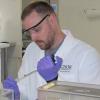Transition away from enthusiast
By Kelsey Moody
Overview
The mainstreaming of longevity science, coupled with the popularization of DIY biology, has led to the creation of a unique niche of technology enthusiasts who present a potentially valuable resource for advancing rejuvenation biotechnology. This brief guide is my account of major pitfalls facing newcomers to the field, and general advice on how to apply your resources intelligently.
Education vs. mindset
Your education no longer limits your capacity to contribute to science. Popular resources like wikipedia provide concise, general overviews of research spaces, while peer-reviewed journal articles fill in the too-often-neglected specifics. Protocols for common methods can be found on Google or Youtube, while used Amazon books provide an inexpensive means to learn highly technical methods. These resources are readily accessible to everyone. For this reason, I believe mindset is far more important, and I cannot stress this enough. So frequently on forums and in conversation, people hype the latest article from popular science magazines. "Science Daily says making telomeres longer in mice lets them live longer, so why can't we just do that for humans?" This is the wrong mindset. The 'why can't we' is wrong. The 'just' is wrong. The scientist asks, "Why should this work in humans?" The scientist must identify, in excruciating detail, what the 'just' actually is, how it will work. This is where enthusiasts tend to lose interest. Science is hard. Progress demands a degree of specificity that frustrates most hobbyists. Inevitably most ideas are riddled with holes, and many become subjective and defensive when their idealistic proposals come crashing down around them. The scientist remains objective, asking, "How can I disprove my idea as fast as possible, using the fewest resources?" This is efficiency. This is the mindset that must be acquired to transition from an enthusiast on the sidelines, to someone making a meaningful contribution to aging research. There is limited use for the former, but we desperately need the latter.
Constructing a garage laboratory
Many technology enthusiasts do not participate in research because they do not think they possess the means to setup and maintain a functional laboratory. This is not so. A basic cell culturing setup can cost less than $1,000 for equipment, and a cell line can be maintained for less than $1,000 per year. Biopharma liquidations (go-dove.com), provide an inexpensive source for this and other equipment, especially if purchased locally (beware of shipping). Advanced liquid handling robots have gone for as little as $50 each, and can be used for various analytical tasks, screening assays and routine cell culture. To the creative mind, much of this equipment can also be built from scratch or by converting junk in the garage. Two feeder mice from your local pet store can provide all the animals you ever need to learn surgical techniques and work with an animal model for your project. If you are serious about making a difference, be brazen, be bold, and do it! What problem do you want to solve? What is your solution? How can you prove that your solution will fail using the least amount of time, money and effort?
Making a contribution
For the past five years I have seen the same suggestions appear over and over again. Make a knowledge-base for aging research, develop an information sharing platform, rally the researchers with conferences and advocacy, lobby the government, spur the masses to action, throw money at it! Useless. I have seen bloggers and forum users post the same opinionated comments and poorly constructed ideas, citing nothing in support of their claims. Even those that do cite almost exclusively list public magazine and wikipedia articles instead of peer-reviewed sources. When I first entered this community, I was the same. As I matured into a professional scientist and researcher I learned that cold objectivity and close attention to detail are the tools of scientific progress. It is time that we as a community raise our standards to a level worthy of mainstream scientific respect. Legitimate science can be done in a garage. I've seen it. I've done it. Anyone who reads this can make a meaningful contribution to the scientific conquest of biological aging. However, wishing it will not make it so. We need doers and we need doers who do it right.
Contact kelsey.moody@gmail.com
Edited by kmoody, 13 March 2011 - 09:00 PM.
















































